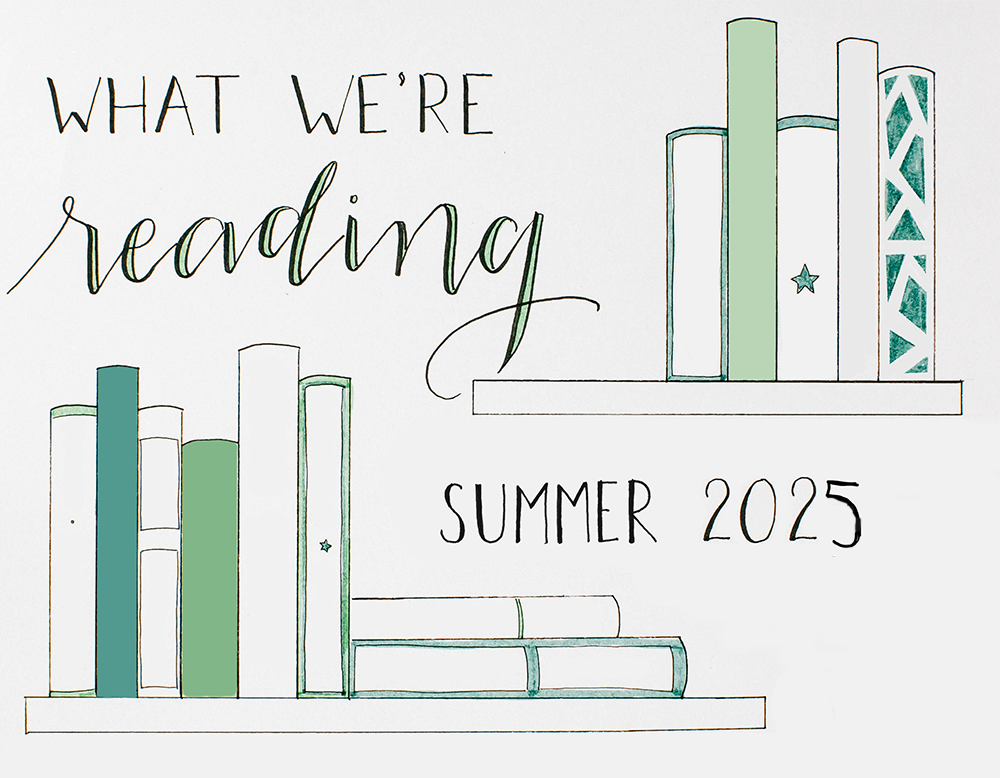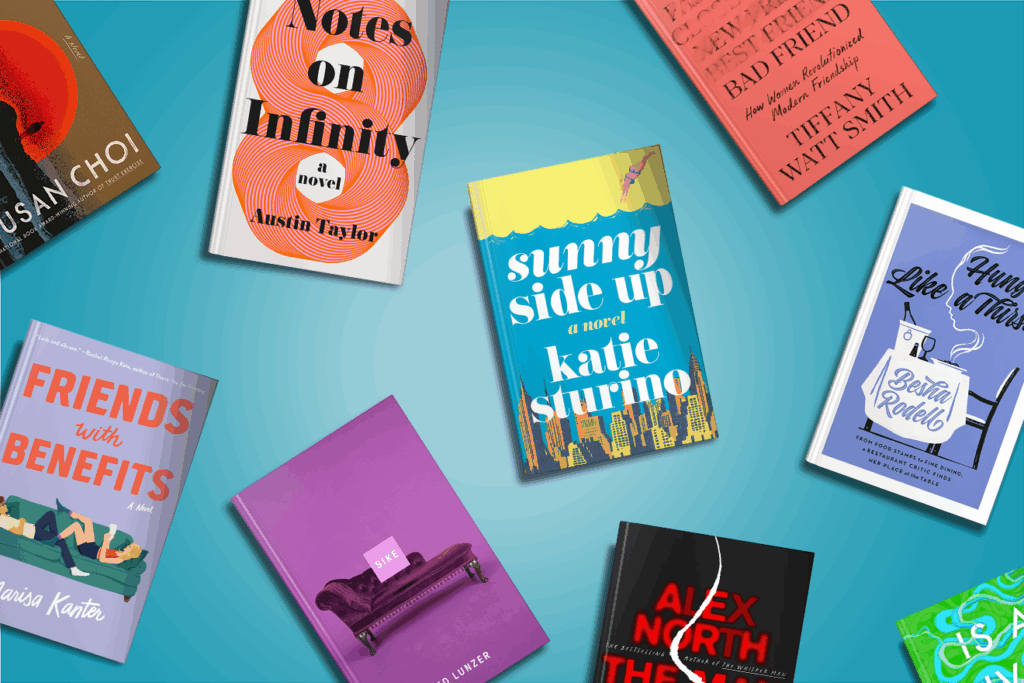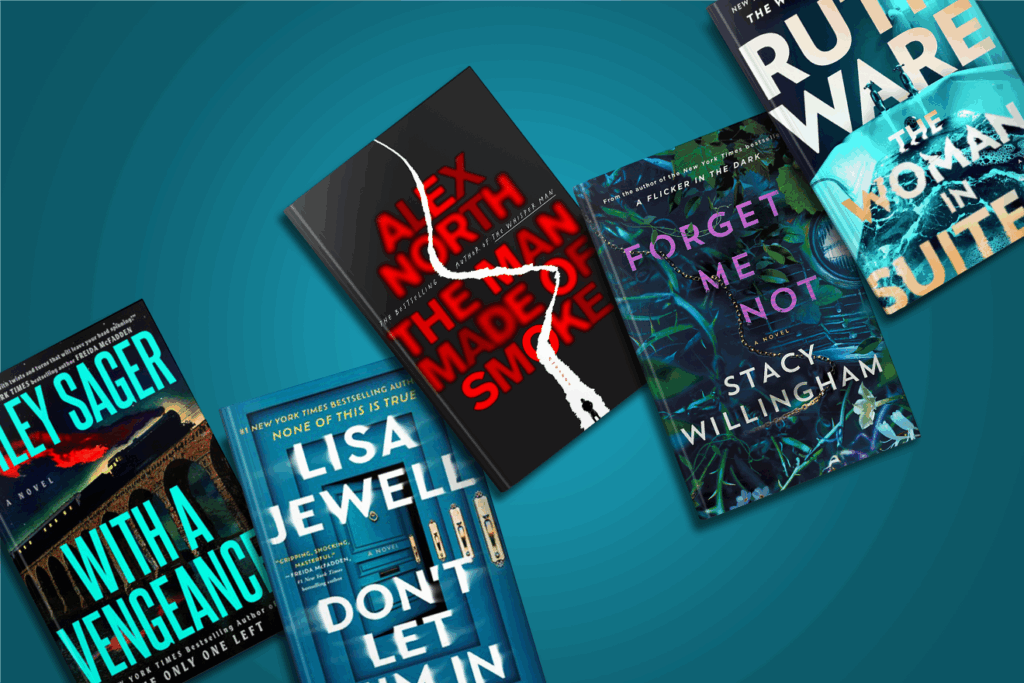
Aarti Shahani’s memoir Here We Are: American Dreams, American Nightmares covers a lot of ground. It traces her family’s journey to a New York City tenement in 1981, travels to elite private schools and suburban neighborhoods, and lands in the criminal justice system. It’s the story of successes, failures, and how unwittingly selling electronics to a Colombian drug cartel shaped the lives of everyone in the Shahani family.
 Why was it important for you to write this book? Why now?
Why was it important for you to write this book? Why now?
I ran away from this book for quite a few years. I worried that by revisiting the past, I’d be trapped in it. But, turns out, the past would not go away. It sat there, inside me, patiently (or impatiently) waiting till I was ready. I needed to feel secure enough in other parts of my life, namely, my career and my credit score. Once I did, it just hit me: Oh! I won’t get stuck in grief if I write you; if I don’t write you, I won’t be able to move on with my life. I felt like one of those old school cassette players, with the tape on pause. Writing the book was hitting the “play” button.
There were also the 2016 elections. Many Americans asked themselves: What am I doing for my country, besides complaining? I’m a writer; sharing a piece of my family’s immigrant story became my unique contribution at a moment when people like us, who are the essence of America, are under attack.
How does your family feel about the book?
My mom blocked out hours on end because I needed her to tell me about life before I was born, and the real reason we came to this country. (I had no idea.) It was hard stuff. We had to stop, take breaks. It struck me how you can know a person your whole life, and still be clueless about the heaviest weights inside them. She says the process was cathartic.
My siblings are prominent characters too. I’ve learned from journalism that even when you write the most flattering things, you never, ever know how a source will react. This book is full of unflattering details. Families, real ones at least, can get quite ugly. When I handed the manuscript to my brother and sister, I had a knot in my stomach for three weeks. That’s how long I gave each of them to read it and give feedback. I worried they’d hate the book and then I’d have to either kill it or hurt them. So, you can imagine how it felt when they each came back and said some version of “I love this story,” “we sound like ourselves,” “wow, we went through a lot together.” I was so relieved, I plopped down at my favorite dive bar and ate a basket of onion rings.
With current immigration policy, how would your family’s story be different if it started now instead of 1981, when your family arrived undocumented?
If my family arrived now, the subheading of this book would just be “American Nightmares.” There wouldn’t be “American Dreams” to celebrate. My parents, siblings and I would still be undocumented. There’d be no way to get papers. Some people say: “Immigrants should just stand in line.” What line? It doesn’t exist like it used to. I can’t emphasize this point enough: We are making it harder and harder for newcomers to settle in our “nation of immigrants.” It’s like each generation has forgotten our family history, the hard work our parents put in and the corners they had to cut to make America home. I wrote this book as a reminder to myself: Aarti, don’t whitewash your own history. Stay honest. Let that honesty about the past, for each of us, be a blueprint for the future of the U.S.
During a high school class trip to Washington D.C., you had the opportunity to meet and ask Ruth Bader Ginsburg a question—you described her as being “unimpressed.” If you met her again, what would you ask?
Actually, she was so thoroughly unimpressed, she handed me a pocket-sized copy of the Constitution and suggested I read up on the Fifth Amendment, which is about due process. I’d give RBG a complimentary copy of my book and ask if she thinks I’ve learned the lesson.
You went from being a community organizer working in the prison and deportation system to being a tech reporter. Why the career change?
I like meeting and trying to understand a wide range of people, especially if you’ve got hustle. Whether it’s the working-class immigrants of New York (who happened to get locked up), or the tech elite (whose legal teams keep them out of prison), these are communities and individuals with incredible pressure on them to succeed, fantastic drive, and lots of blind spots.
So, while it may look from the outside like a random or exotic pivot—prison activism to Silicon Valley reporter—the internal journey has been strangely consistent. It’s easier to see that in hindsight.
How is writing a memoir different than reporting the news?
Both are attempts at telling the truth. Both rely on hard skills, like research and interviewing sources. But they have a fundamentally different relationship to the fact of personal bias. Journalism is supposed to be objective. That’s the industry standard, or myth. Newsrooms have a hard time acknowledging how subjective our editorial decisions are. In memoir, the fact of the personal journey is the very meat of the story. You can’t ignore it. You stare it straight in the face, see it, yourself, for what’s really there.



